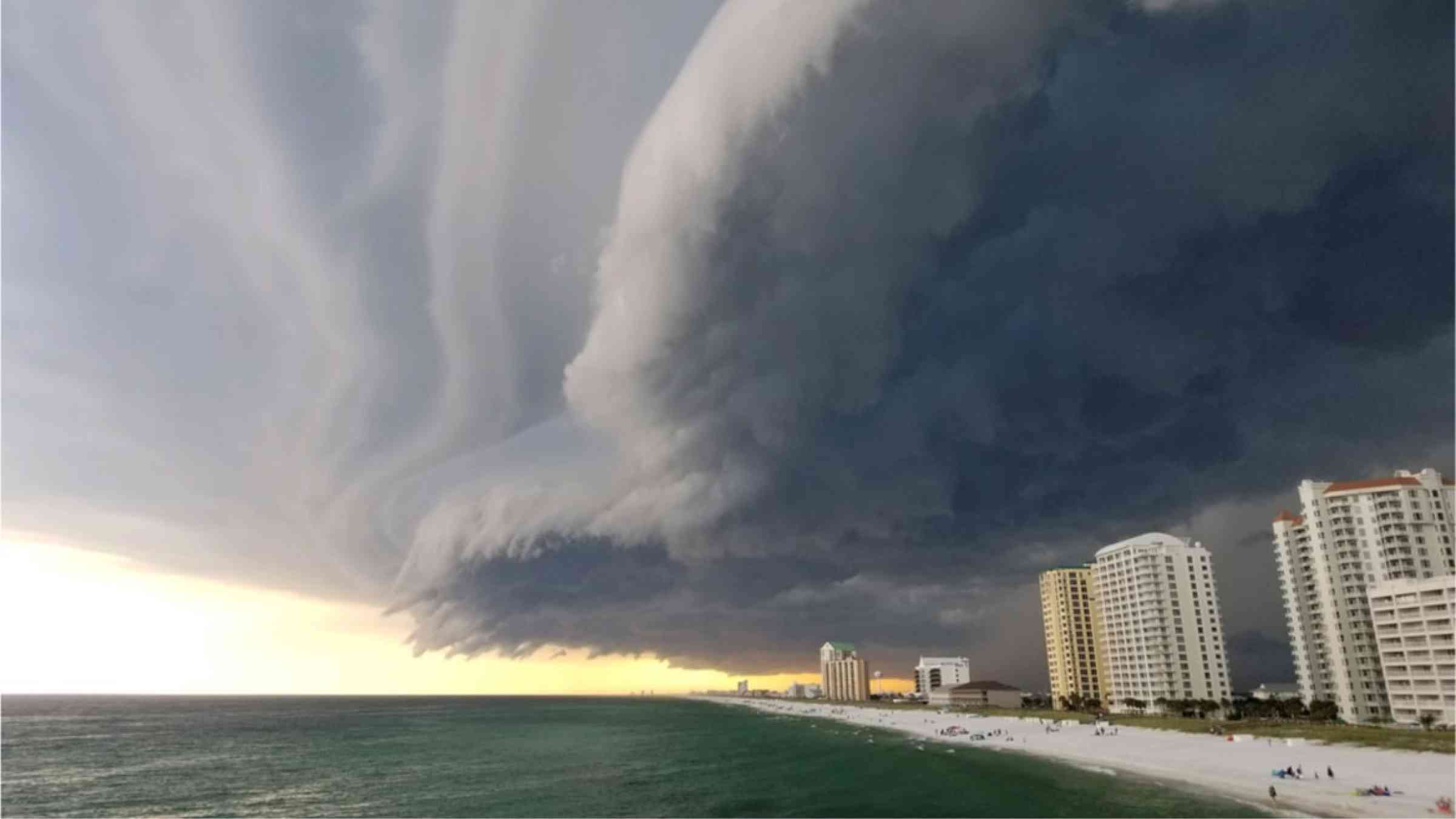As hurricane season kicks off, UCF researchers working to make communities more resilient

More than a dozen researchers are working on a wide variety of research that looks to prepare, respond, and mitigate hurricane impacts in Florida and beyond.
The National Oceanic and Atmospheric Administration has predicted another busy hurricane season with up to 21 named storms for 2022. While we still can’t predict exactly when hurricanes will strike, researchers at UCF are working on various projects to help communities properly prepare and recover when it does happen.
Resiliency and the use of technology are key in the work being done at UCF. Here’s a roundup of some of the many relevant research projects at UCF and how they can potentially help residents in Florida and beyond.
Home Vulnerability
Public Administration Associate Professor Chris Emrich, in collaboration with researchers across several universities this year, developed an online tool homeowners can use to check how vulnerable their homes are to natural disasters such as hurricanes and floods. A score is generated based on public records about your home as well as scientific data about your geographical location. Hazardware is free and available to the public now. It includes tips for reducing risks to your property based on the score your home generates.
The Power of Social Media
Claire Connolly Knox, an associate professor and founding director of the Master of Emergency and Crisis Management program, is working on two studies. One focuses on identifying cost-effective, climate-informed green infrastructure adaptations to reduce flood risk in Houston’s vulnerable and underserved communities. The National Oceanic and Atmospheric Administration has funded the project. She also recently completed a study looking at how Florida counties used social media as part of their emergency management before, during, and after Hurricane Irma. For many Florida counties, Hurricane Irma in 2017 was the first time using social media during a disaster. She found that some agencies still don’t use social media as part of their communication strategy, some rely only on social media and the vast majority are somewhere in between. Rather than just using social media to push out information to communities, Knox and her team have found that some agencies are finding creative ways to gather information from citizens’ posts to better deploy help. She found several challenges, but many possibilities for empowering citizens and communities to provide critical information that could help better deploy emergency response resources during hurricane emergencies.
Predicting Traffic for Better Evacuations
Engineering Assistant Professor Samiul Hasan is looking for ways to better understand real-time individual, social and agency behavior during evacuations caused by rapidly intensifying hurricanes (RIH). These kinds of hurricanes quickly intensify making critical infrastructure management and smooth evacuations more challenging. Hasan and the rest of the research team are analyzing the “dynamics of risk information processing and decision making to inform the design, development, improvisation, and overall evacuation management for critical transportation infrastructure. The insights from the research are expected to help facilitate safer evacuations and more efficiently organize risk-averting behaviors during RIH,” the researchers say of the U.S. National Science Foundation-funded project that is expected to wrap up in 2023. Hasan also is studying how real-time data from roadway systems and social media can help predict traffic demand during hurricane evacuations. Hasan used data from hurricanes Matthew, and Irma.
Reducing Crashes During Evacuation Rush
Rezaur Rahman ’19MS ’21PhD, a former doctoral student in Hasan’s lab, also investigated how we might reduce the number of crashes on the roadways during stressful evacuation times. In his study, published last year, he evaluated the safety impact of Adaptive Cruise Control (ACC) systems during a hurricane evacuation. The team developed a microscopic simulation model of evacuation traffic and calibrated it using traffic data from an almost 10-mile stretch of I-75 between Ocala and Gainesville, Florida, during Hurricane Irma’s evacuation period. Rahman’s model found that by using cruise control crashes could potentially be reduced by almost 50 percent, and travel time improves despite heavy stop-and-go traffic. The SAFER-SIM University Transportation Center, a consortium of various universities including UCF, supported this study.
Hurricanes and Sea Level Rise
Engineering Assistant Professor Thomas Wahl and his team are working on a new method to determine where extreme events, like 100-year storm floods, are more likely to occur, whether the likelihood of such extremes is changing over time, and why.
These projects are but a snapshot of the research that goes on at UCF to help people and communities be better prepared for hurricanes. As the work continues, new findings will be shared with the public, policymakers, and emergency managers to help ensure we stay resilient during hurricane season.